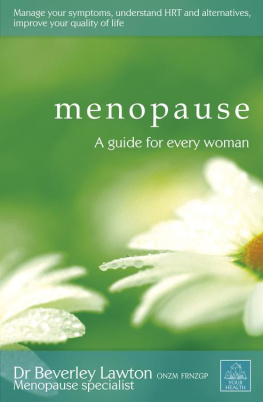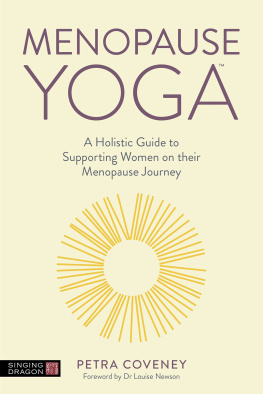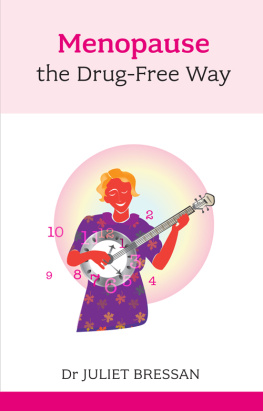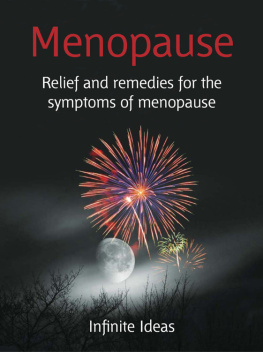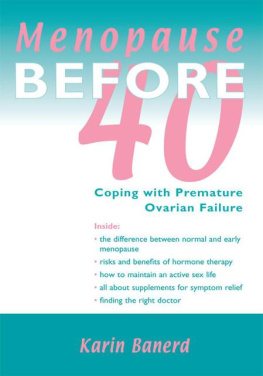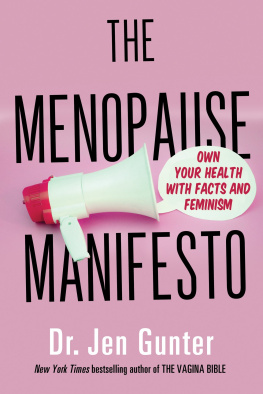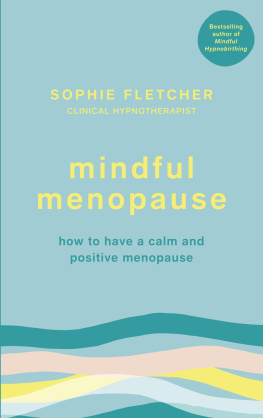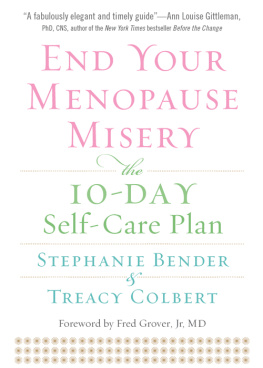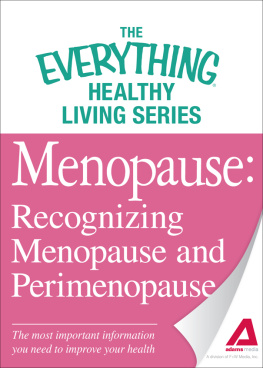Dr Beverley Lawton combines her in-depth knowledge of the topic with the experiences of New Zealand women to create a book that gives you the information you need to make informed health decisions.
Dr Beverley Lawton is an expert in womens health. She co-founded the Wellington Menopause Clinic in 1994 and is a senior research fellow at the Womens Health Research Centre, Wellington School of Medicine and Health Sciences. Her research focuses on mid-life health for women. She was made an officer of the New Zealand Order of Merit for services to womens health in 2004 and is the President of the Australasian Menopause Society.
Menopause is a natural process that happens to every woman if she lives long enough. The word menopause simply means the end of menstruation when the periods stop. But the menopause also signals a health crossroads, a time when we can assess our health and look forward to a new phase of our lives. In this book we look at what menopause means, the changes that occur in our bodies, the effects both good and bad and the need to assess our health as a whole and make decisions so that we can live out active, healthy lifestyles in the future.
Although menopause has been around as long as human life, it is really only in the last fifteen years that we have begun to talk about it openly and supportively. When I trained as a doctor there was no instruction on the menopause and I had no idea what it was or what the symptoms were. My first experience with it was when I started in general practice twenty years ago. A 53-year-old patient came to see me. Doctor, she said, I think I have cancer Im hot all the time and I wake at night soaking wet. I sweat all day. Its awful!
I listened, took a full medical history and ordered some blood tests, then asked her to come back in five days. Later I discussed the womans symptoms with a senior colleague and asked his opinion. He informed me that she had womens problems the menopause and that prescribing HRT (hormone replacement therapy) would settle the symptoms.
When my patient returned I informed her that she didnt have cancer, and that if she took HRT the symptoms would soon resolve. I explained that her symptoms were normal, and that even without treatment they would probably go away. When she came to see me six months later about an unrelated matter I asked her about her menopause symptoms and how the medication was going. She replied, Oh, I didnt take the medication. As soon as you told me what it was, and that I didnt have cancer, I didnt need to worry any more.
The lesson for me was that it was information she needed, not medication. Information is power the power to make decisions about and for ourselves. It was this and similar cases that led me and two colleagues, Dr Jill Shepherd and Professor John Hutton, to open the Wellington Menopause Clinic in 1994. Our aim in setting up the clinic was to provide a centre of excellence for women, and to raise menopause issues both in the community and within the health profession.
Menopause affects us all in different ways each womans experience is unique. About 20 percent of women will not have any symptoms, another 55 percent will have mild to troublesome symptoms, and a further 25 percent will have severe symptoms. These symptoms relate to the hormonal changes that are occurring in our bodies, and can include hot flushes, night sweats, palpitations, mood changes and vaginal dryness. An associated condition that we need to be aware of and take steps to prevent is osteoporosis.
Since the dramatic publication of the Womens Health Initiative (WHI) study in the US, which drew attention to the possible risks of HRT, the subject of menopause, and in particular HRT, has become quite intimidating to some women, with conflicting information being given out, and differing opinions aired. In Menopause we look at the facts about HRT, just what the WHI and other studies really say, and alternative treatments for the symptoms of menopause. We also look at what women are saying, and the decisions they are making about their treatment.
Knowing that other women share similar experiences is very empowering. We all know lots of fantastic women who are living successful, fulfilling lives after menopause. For some it is a small, fleeting blip in their lives, while for others it is a minefield that affects their whole quality of life. The important point is that menopause is manageable. One of the aims of this book is to provide information about the tools that can be used to help women through this phase of life, and the simple lifestyle decisions we can all make to ensure the best quality of life in the years ahead.
The book does not need to be read from cover to cover. I suggest you read the preliminary chapters so that you have a clear understanding of what is actually happening to your body during menopause, and the chapters that deal with the areas that most concern you.
My perspective is that of a doctor, research scientist and, of course, a woman. I make no apology for my evidence-based approach. Many books take a less scientific approach, often promoting unsubstantiated cures. My approach is that I want to see the evidence that what is suggested is in fact a cure. Then, if it works, I will recommend it, as long as I know the risks, benefits, side effects and interactions, and can adequately convey this information to women. The treatment of menopause symptoms can involve a range of measures, such as increasing exercise, losing weight, having screening tests such as mammograms and cervical smears, or taking medication, whether it be HRT or a herbal treatment.
Menopause signals a new stage in life. It is sometimes likened to adolescence, with its ups and downs, but it is rewarding in the end or we can make it so. Gail Sheehy, in her book New Passages, describes menopause as the second adulthood. We need to keep talking about menopause and start supporting each other when we are being troubled by symptoms. Our environment is often unsupporting of women who are having to deal with symptoms like hot flushes, and women themselves need to help each other, both when they seek treatment and when they decide not to have treatment.
Menopause is by no means the end of a womans life on average we still have a third to a half of our lives to live, and we need to look at how we want to spend these years. Menopause can be regarded as a crossroads, a time for women to make a personal assessment of all areas of their lives. It is a time to move forward and consider which paths to take.
It has been a great privilege to be able to learn from women over the last ten years in my role as a menopause doctor. The most effective treatment I can offer in return is information and choices, and that is what I have attempted to do in this book. So enjoy the book, and I hope you find it useful.
Thanks to my friends and colleagues who valiantly ploughed through the early drafts of the book Dr Jill Shepherd, Dr Leona Wilson, Margaret Doucas, Lisa Lawton and Dr John Delahunt and others. Special thanks to my mum Zania Singe, who provided lots of advice and enlightening comments as she read: Yes, dear was that what it was? I had that; it was so embarrassing you didnt tell anybody; I think you need a bit more information on this. My hope is that this book will inspire women to tell someone to be informed, talk about what is happening, and support each other.

